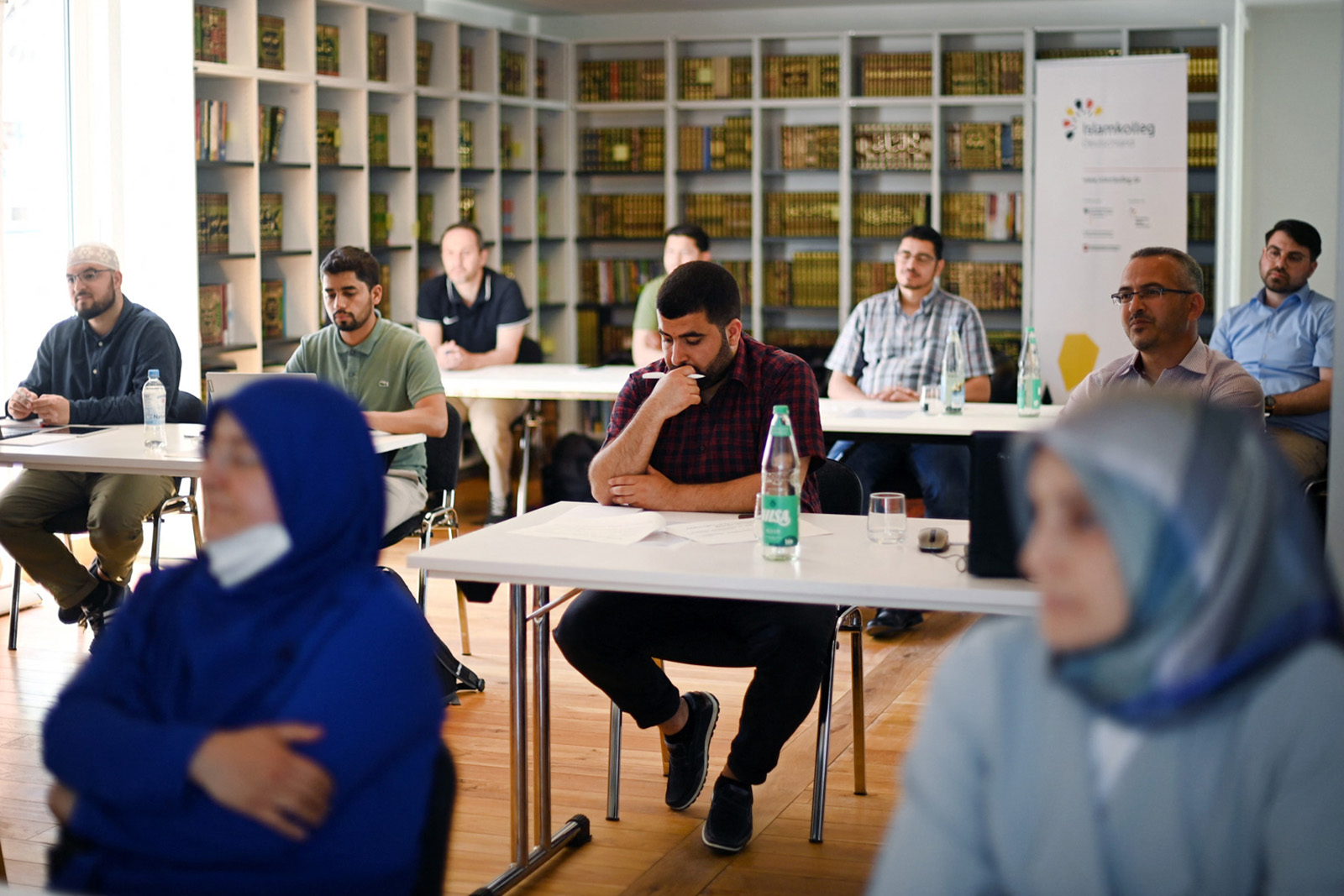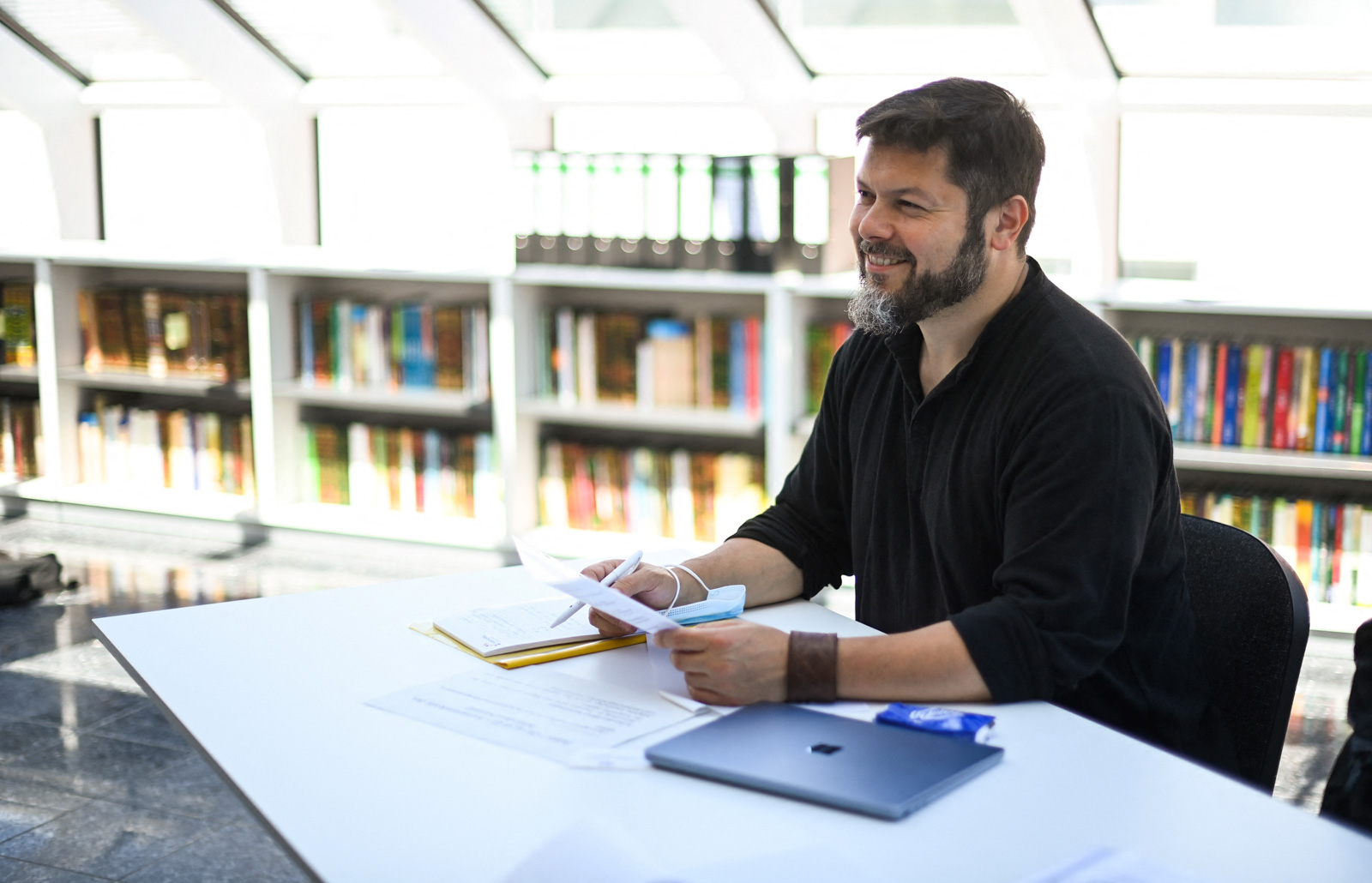Germany wants to train its own imams
Amid fears of Turkish president Recep Erdoğan’s growing influence in German mosques, the government is investing in home-grown imams
–

Ender Cetin is in good spirits. The 47-year-old — among the first graduates of Germany’s very first imam college — thinks the government’s plan to train more Muslim religious leaders in Germany rather than rely on imams sent from Turkey is an exciting idea. “It’s a turning point for Muslims here,” Cetin said. “Until now, the roots and ideas of our mosques have always been from outside.” Now, he believes, Muslims finally have the opportunity to create their own version of Islam that is fully rooted in German culture.
The Turkish community is Germany’s largest minority group, with about three million members. In the early 1980s, the German and Turkish governments made an agreement that Turkey would send imams to preach at German mosques. At the time, this was a mutually beneficial arrangement — Germany did not need to develop the infrastructure to train imams itself, and Turkey could maintain strong ties with its diaspora.
There are now around 1,000 Turkish imams in the country, employed by Ankara as civil servants and working on four to six-year rotations. As Recep Erdoğan’s presidency has become increasingly autocratic, German authorities have voiced concerns that his government is overexerting its influence within German borders. Last December, Germany’s Minister of the Interior Nancy Faeser announced that her government had agreed with Ankara to phase out their arrangement, and will invest €500,000 into expanding in-country training with the aim of training 100 imams in Germany every year.
“Turkey has been supporting mosques abroad since the 1970s, and of course this has been an excellent source of soft power,” said Ahmet Erdi Öztürk, a senior lecturer in international relations and politics at London Metropolitan University who has written extensively on Turkish politics. He explains that under Erdoğan, Ankara’s influence on Turkish communities abroad has involved “dividing the diaspora into ‘good’ and ‘bad’ members” and allegedly surveilling those it regards as dissidents.

The Turkish-Islamic Union for Religious Affairs (DiTiB) is the largest mosque umbrella group in Germany; it funds and manages around 900 mosques around the country. It has close links to Ankara and has become increasingly controversial. Some of its imams have been accused of leading prayers for Turkish military success, a claim DiTiB denies. Several of its imams have also been investigated for spying on members of the Gülen movement, a religious sect Erdoğan claims is working to overthrow his government.
Saftar Çinar, spokesperson for the Turkish Confederation of Berlin-Brandenburg and former chairman of the Turkish community in Germany, says the pro-Erdoğan stance of German-based imams has been a point of contention for congregants. “I have heard many people complain that when they go to the mosque, the imams are preaching too much about politics and not enough about religion,” he said.
The Islamkolleg Deutschland, which is located at the University of Osnabrück, opened in 2019. It is the first training institution backed by multiple Islamic organisations in Germany. While independent, it is supported by the Ministry of the Interior and overseen by the university’s academics. Its first cohort of 26 students — of which Cetin was one — graduated in 2023. While significant, these numbers will have to increase significantly if the government hopes to meet its goals.
For Dr Murat Çağlayan, adviser for political education at the college, geopolitics is not the most important reason to train imams in Germany. He believes it is essential that religious leaders understand German culture and, crucially, speak the language. “Most Muslims living in Germany now were born here and socialised here, and they want their imams to speak German,” he said. He believes the need is greatest among the younger generations, who don’t relate well to imams from other countries who do not share their native tongue. “There are also differences in thought, differences in the concept of democracy, and differences in the concept of how to live together with other religions.”
Cetin, his recent graduate, echoed these concerns. “It’s OK for my generation, who still speak good Turkish,” he said, adding that his parents both migrated from Turkey before he was born. “But for my kids’ generation, they are falling asleep during the preaching.”
Cetin believes the inability of foreign imams to speak to young Muslims in Germany — both in terms of language and in terms of their connection to the issues important to them — fuels what he describes as “ghettoization” in which they become trapped between two cultures, not fully at home in either. He fears that a lack of relatable imams in local mosques is leaving some young people vulnerable to radicalisation online. “They go on social media instead, to listen to imams on TikTok,” he said. “I think this is very dangerous.”
DiTiB is not collaborating with Islamkolleg Deutschland. Instead, it has set up its own training programme in Germany. Previous reporting has stated that it objects to potential state interference.
Other European countries, including France and Austria, have tried to phase out foreign imams with limited success — in large part because of inadequate solutions for training enough imams of their own. Çağlayan from Islamkolleg Deutschland estimates that it will take at least 15 years for Germany to train enough imams to replace those sent from abroad and, even then, DiTiB will still be schooling a significant number.
At London Metropolitan University, Öztürk doesn’t believe the new agreement will do much to reduce Ankara’s influence in Germany; the millions of Turkish Muslims living in Germany will still want imams with a connection to home. “Otherwise Turkey would not have agreed to it,” he said.
Topics
Get the Hyphen weekly
Subscribe to Hyphen’s weekly round-up for insightful reportage, commentary and the latest arts and lifestyle coverage, from across the UK and Europe
